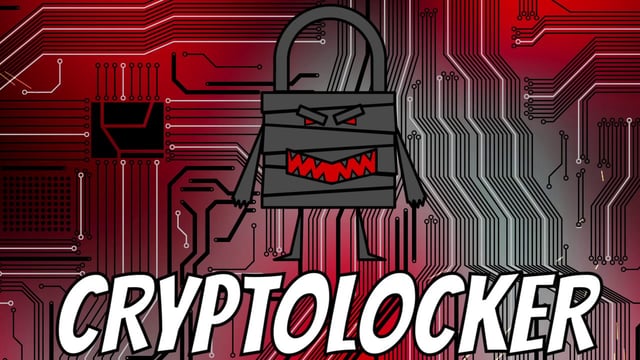
The bad guys “forget” the key that will unlock them and that’s that. If you don’t pay in that time then your files go to data heaven. Once you’ve been infected, you will be presented with a demand for money (typically $100 or $300) and a short time (4 days) to pay up. Other common ways of getting you to open an infected file include faking the attachment as a FedEx or UPS delivery note, or faking a document from your bank. So, I haven’t opened the attachment and this has kept me safe from any “payload” it may have (and don’t worry – you can’t catch anything from Figure 1: it’s just a harmless image file by the time you see it).

and, anyway, I have a system (of sorts!) for tracking Amazon orders and know I’ve got nothing outstanding. Fake email message that may contain CryptoLocker or other malwareĪlso, this just isn’t how Amazon send despatch notices etc. Since when did Amazon send emails out in the name of 1. I don’t know if this one contains CryptoLocker, but I do know that this message is fake. It appears to be from Amazon and it would be very easy indeed to apply 20% of my attention to it and just open the attachment.
#CRYPTO LOCKER EMAIL ZIP FILE#
I received a similar thing just a few days ago (although it displayed as a zip file in this instance).
#CRYPTO LOCKER EMAIL PDF#
It’s usually downloaded as an email attachment when the user is duped into accepting something that looks like a pdf file, but isn’t.
#CRYPTO LOCKER EMAIL MAC#
Maybe the “perps” are very clever and have realised that if they get a reputation for “honouring their promise” (huh?), then sufferers will be more likely to take a risk and pay.Īt this point, Mac users are permitted a smirk – CryptoLocker only attackes Windows computers. Strangely, it appears that paying the ransom does actually get you the “key” to unlock your files again. Once attacked, you can not get access to those files unless you pay the perpetrators to decrypt them. It’s a horrible piece of malware that encrypts the most common types of data files on your computer (especially Microsoft data files such as Word documents and Excel spreadsheets).

For example: Form_, Form_20130810.exe, Form_ next time that an IT horror story breaks through into mainstream consciousness, it could well be caused by CryptoLocker Subject: “Annual Form - Authorization to Use Privately Owned Vehicle on State Business”Īttachment: Attachments follow the naming convention of “Form_.zip.

We’ll assist you through the remediation process. If you become infected with CryptoLocker, contact the Service Desk at (405) 521-2444 immediately. Since the owners of this particular virus spoof the email address of reputable companies (FedEx, UPS, Chase) be careful when opening unsolicited mail from well-known companies and don’t open attachments such as Zip or EXE files. Because of this, it is important that infected systems be identified as quickly as possible and remediated immediately.Īlways practice common safety – never click a link from someone you don’t know, don’t visit untrusted websites or follow links provided by unknown/untrusted sources. To complicate matters – it may be 24 hours between when someone gets infected and the virus does its deed. The trouble is – paying the fee to criminals doesn’t always mean they are going to give your files back. CryptoLocker is known as “ ransomeware” and encrypts specific files on your computer (photographs, videos, documents, spreadsheets, etc.) There is no way for you to break the encryption –and the hackers demand you pay a ransom of more than $300.00 If you don’t pay the fee before the 72 hour deadline, your files are completely unrecoverable. A new and particularly nasty computer virus called “CryptoLocker” is running loose in the world.


 0 kommentar(er)
0 kommentar(er)
